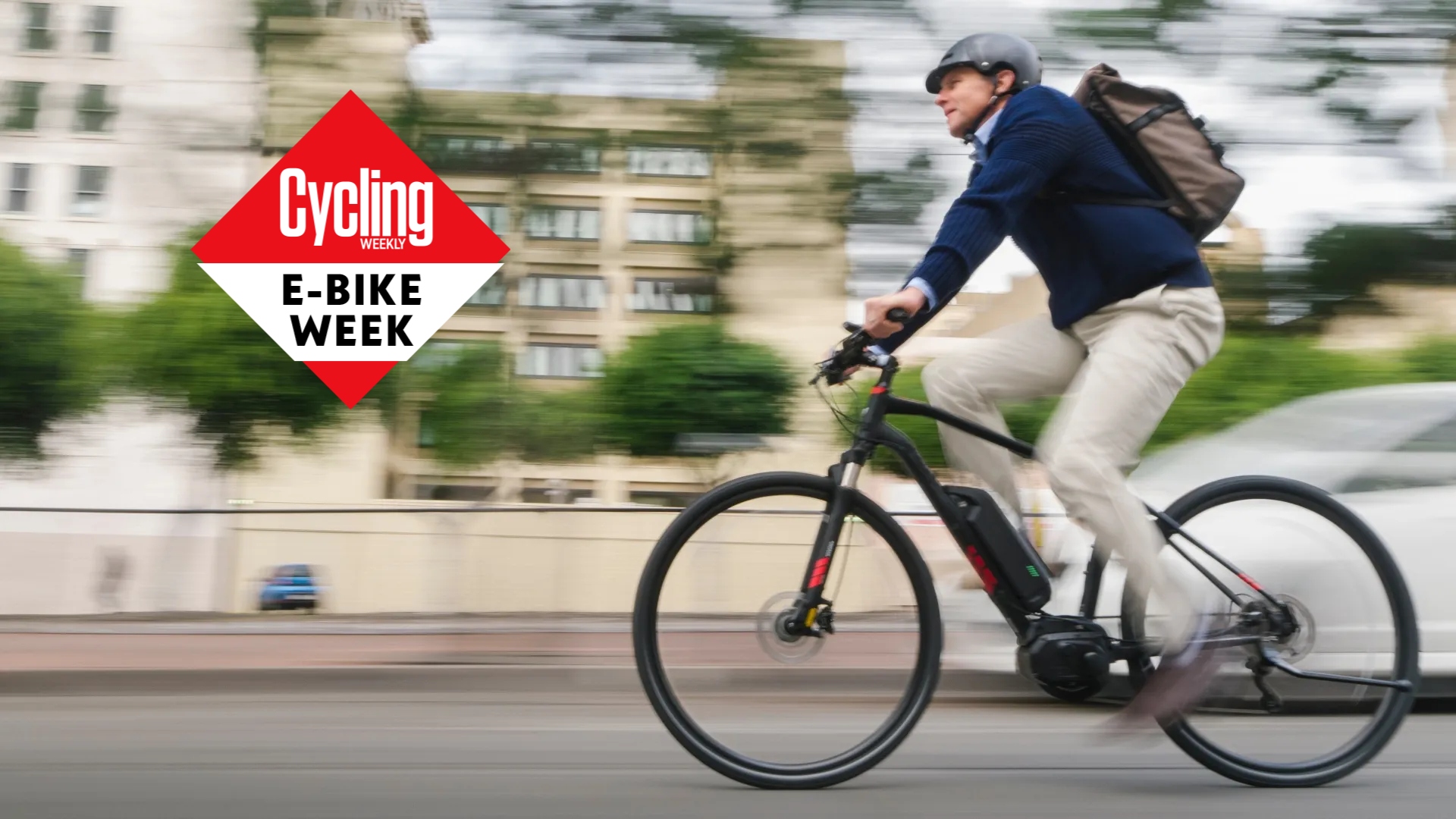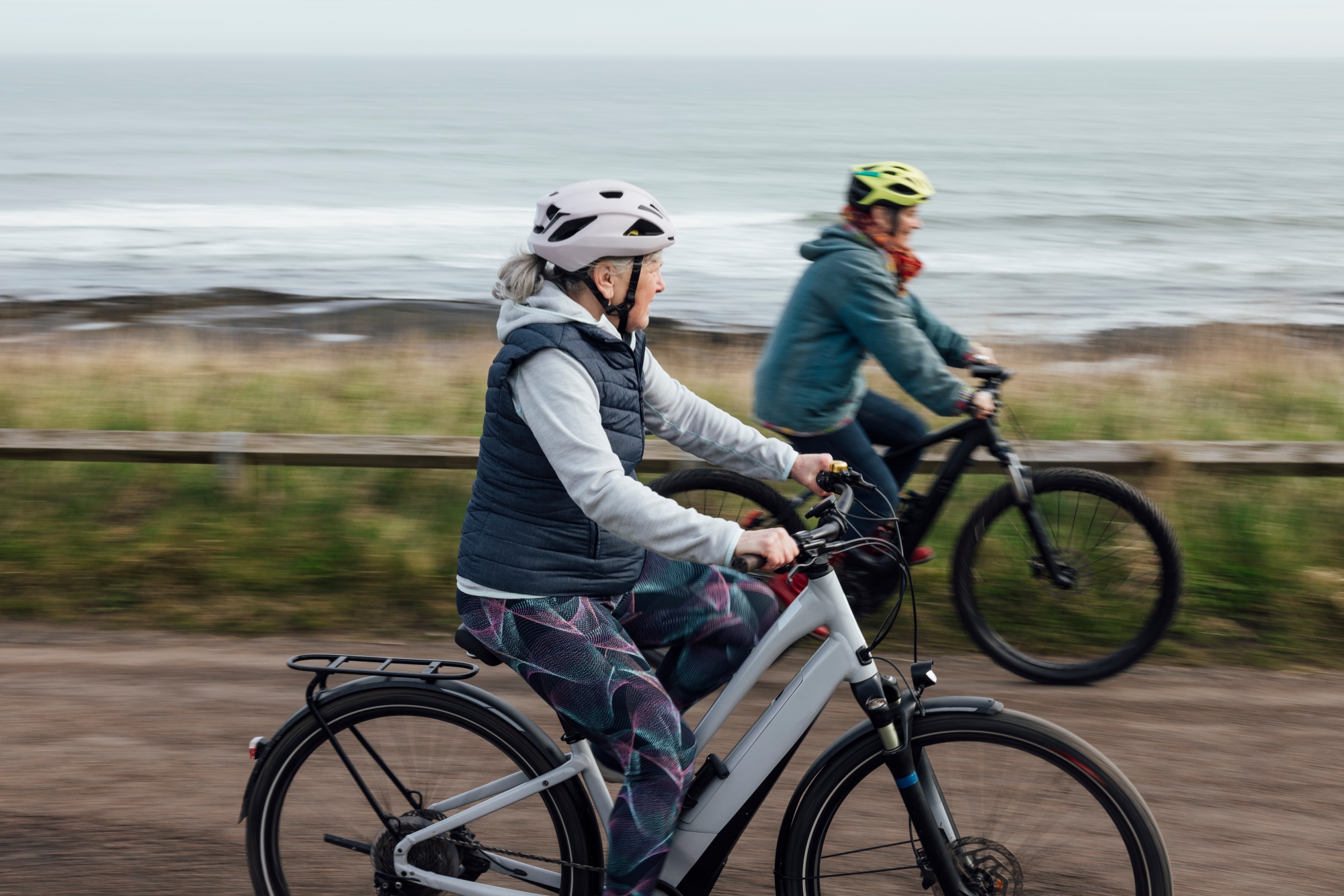Electric Bikes should not be classified differently to analog bikes - here's why
Sam Jones argues that a two-tier system adds unnecessary complications and could even discourage e-bike use


I believe the law should treat electric bikes and regular bikes no differently. The law determines where we can cycle legally, whether licensing is required, what safety equipment is required and whether regular maintenance is needed (though this is always advised).
Of course, in sporting events or at point of purchase, where the consumer wants and needs to know what sort of bike they’re getting, there is a need to classify e-bikes differently to ‘analog’ or ‘acoustic’ bikes. But where you can cycle, whether you need a helmet, registration or insurance – for e-bikes the law should stay the same as your normal push bike.
That is, of course, so long as the legal definition of an e-bike does not differ massively from conventional bikes (which for the sake of this article I’ll just call ‘bikes’).

Most countries around the world do not differentiate between bikes and e-bikes in terms of the legal requirements to ride them. They also broadly share similar rules on what legally defines an e-bike: engine size (measured in watts), they must be pedal assist (no pedal, no power), and will have a maximum speed where the electric assist cuts off.
The specifics do vary from country to country, and even from state to state in the US. For instance, the EU and UK currently have a maximum engine size at 250W and cut off at 15.5mph, while in the US you can have 750W and cut-off speed at 20mph. Those are speeds that most reasonably fit folk on a bike can easily match and probably surpass.
If you increase the capacity of speed and/or engine or remove the pedalling aspect, then by most legal definitions that means you’ve no longer got an e-bike, but a low-powered electric motorcycle. In the UK, that means you need registration, a licence, insurance and you have to wear a helmet – not a cycle helmet but a motorcycle one – if you want to ride it legally.

This distinction between e-bikes and illegally registered e-motorbikes is important. Public concern is largely focussed on the latter, but because there is a failure to sometimes understand the difference, aided by sensationalised stories in the media, it’s the former that are taking a reputational battering.
Get The Leadout Newsletter
The latest race content, interviews, features, reviews and expert buying guides, direct to your inbox!
By and large, e-bikes do not have particularly different average speeds to normal bikes, and that’s because of one crucial factor: the rider. Pedaling still requires effort whatever bike you ride, just for most people it’s going to be a bit easier on an e-bike, at least until the power cuts out when you hit your maximum speed – or runs out altogether.
This crucial factor keeps cycling, whether e-bike or bike, as an active pursuit – not a sedentary one such as driving.
In recent times the UK government ran a consultation that sought to change the status quo, and suggested increasing engine capacity to 500W, and introducing a ‘twist and go’ throttle that negated the need to pedal for power. Speaking to the Department for Transport, the outcome of this consultation is unclear due to the July general election and is dependent on the next government deciding whether it's a good use of public resources to conclude and then act on its findings.
Let’s hope whichever political party is elected it doesn’t bother with this bit of legislation, as current proposals are likely to cause more harm than good. No one in the cycling industry, the active travel sector, or even consumers had called for these changes. The consultation did, however, cause concern about the risk of creating a two-tier system in cycling, potentially setting a path where e-bikes might become classified differently to bikes, in part because pedalling was no longer required to get up to 15.5mph.
The Bicycle Association, representing the cycle industry in the UK, said in their consultation response moving to “full throttle” and the other measures were unnecessary, risky and even detrimental to the policing of illegal e-bikes.
“Longer term, it risks moped-style regulations on the whole e-bike category, because with no pedaling required e-bikes would be seen as light mopeds, not as cycles. There are also as yet unquantified risks from more powerful, heavier e-bikes sharing cycle lanes, risking further regulatory backlash.”
I couldn’t agree more, and my views are shared by the All Party Parliamentary Cycling and Walking Group, which wrote to the Department for Transport expressing its concern.
Fabian Hamilton MP, co-chair of the APPG for Cycling and Walking told Cycling Weekly the group saw the measures as counterproductive to encouraging more cycling: “The resources would be better spent on policies that would actively encourage e-bike uptake, and bring us in line with other European countries. A significant number of organisations and manufacturers have also set out in detail their opposition too, so it's clear that the industry is speaking with one voice on this matter.''

E-bikes and bikes are currently co-existing quite well from my experience, so why change that? Especially when making e-bikes unnecessarily more powerful and faster could actually set the wider uptake of cycling back, making it more difficult and more expensive to design the places where people can ride in safety.
Ed Lancaster is the Global Designing Cities Initiative program lead for the Bloomberg Initiative for Cycling Infrastructure (BICI). BICI currently operates across 10 global cities, from Bogota in Columbia to Wellington in New Zealand, working to build safe cycling networks in each location.
"We believe that the key to increasing cycling use is providing facilities that are suitable for all ages and abilities,” Lancaster said. “Allowing more powerful bicycles, riding at higher speeds, to use existing infrastructure will likely increase conflicts and the risk of collisions.
“It will therefore require even more investments in ensuring that streets and cycling facilities are designed to accommodate all users safely."
And where we don’t have infrastructure (yet) e-bikes could actually help people feel safer and therefore keep on cycling, through their ability to increase riders’ average speed. Dr Rachel Aldred from the University of Westminster’s Near Miss Project found “Cycling speed is the main factor affecting near miss rates: those who reach their destination at an average speed of under 8 mph have around three times more near misses per mile compared to those who get there at 12 mph or faster.”
Maybe you’re new to cycling, in your twilight years, suffering from mobility issues or just not looking to break a sweat every time you jump onto a bike (a bad look for meeting with clients if ever there was one). An e-bike will change that, and in turn make cycling not just a more pleasant experience by limiting your experience of close passes, but also likely that bit safer.
We all know bikes are at their best going forward, but classifications that treat bikes and e-bikes differently on and off the road will set cycling on a backward path. Such a two-tier system will further confuse the public, making uptake of this wonderful technology more difficult and less likely for those who will benefit the most.
It will create unnecessary headaches for policymakers and the architects of our streetscapes, which will end up costing more and ultimately is a bit of cycling snobbery that we can do without.
E-bikes are a part of cycling’s future and have a deserved place in the rich tribal family of our beloved activity, just as much as road, mountain, BMX, gravel or cargo bikes. We cast them out at our peril.

Thank you for reading 20 articles this month* Join now for unlimited access
Enjoy your first month for just £1 / $1 / €1
*Read 5 free articles per month without a subscription

Join now for unlimited access
Try first month for just £1 / $1 / €1
Sam Jones has worked for nearly 10 years in cycling advocacy and communications. Formerly the Cape Wrath Fellowship custodian, he is a freelance commentator on cycling issues who works in the Surrey Hills on countryside access issues. A keen bikepacker he can be found riding what the UK would like to think is gravel but is actually mostly mud.
-
 'This is the marriage venue, no?': how one rider ran the whole gamut of hallucinations in a single race
'This is the marriage venue, no?': how one rider ran the whole gamut of hallucinations in a single raceKabir Rachure's first RAAM was a crazy experience in more ways than one, he tells Cycling Weekly's Going Long podcast
By James Shrubsall
-
 Full Tour of Britain Women route announced, taking place from North Yorkshire to Glasgow
Full Tour of Britain Women route announced, taking place from North Yorkshire to GlasgowBritish Cycling's Women's WorldTour four-stage race will take place in northern England and Scotland
By Tom Thewlis